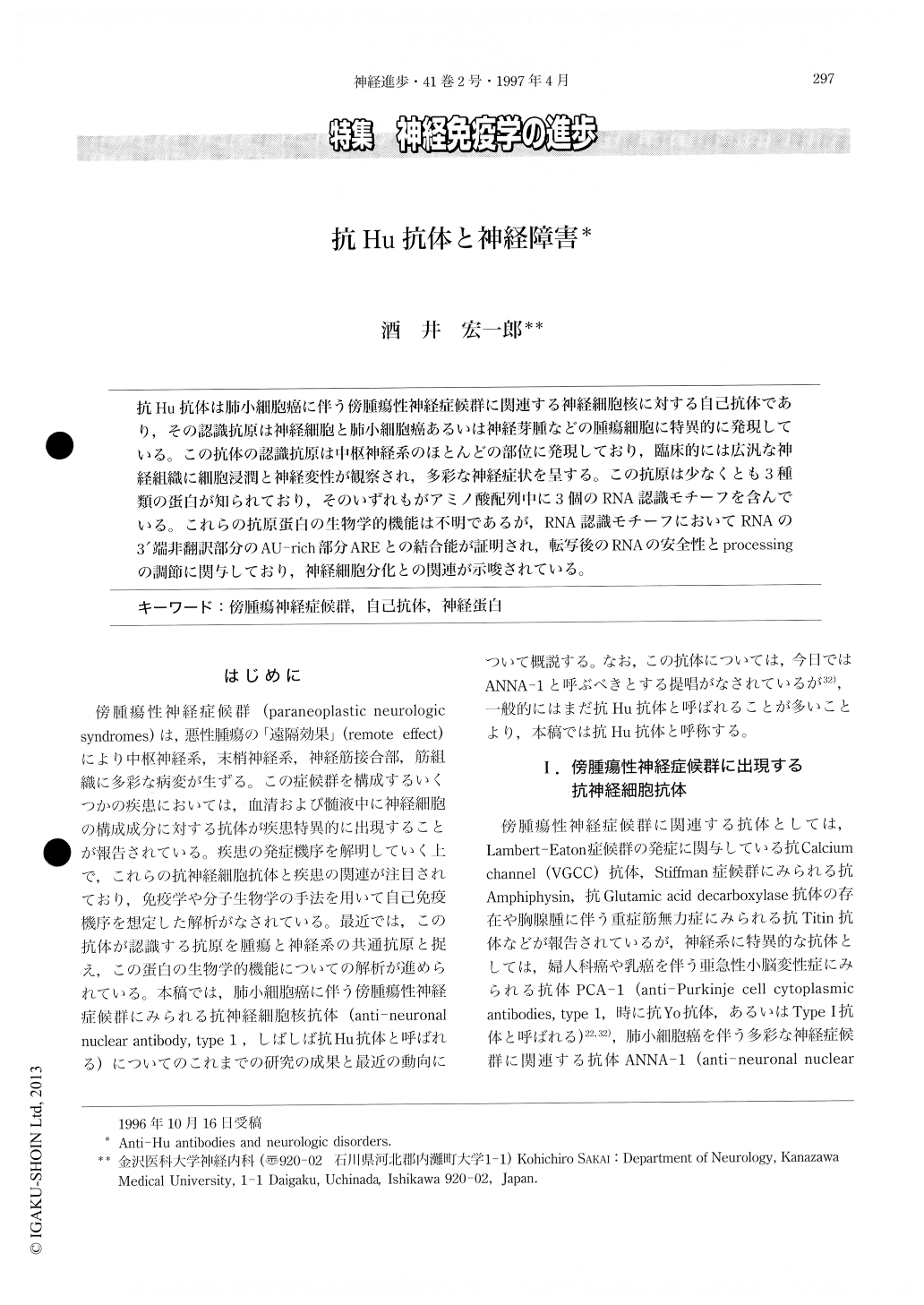Japanese
English
- 有料閲覧
- Abstract 文献概要
- 1ページ目 Look Inside
抗Hu抗体は肺小細胞癌に伴う傍腫瘍性神経症候群に関連する神経細胞核に対する自己抗体であり,その認識抗原は神経細胞と肺小細胞癌あるいは神経芽腫などの腫瘍細胞に特異的に発現している。この抗体の認識抗原は中枢神経系のほとんどの部位に発現しており,臨床的には広汎な神経組識に細胞浸潤と神経変性が観察され,多彩な神経症状を呈する。この抗原は少なくとも3種類の蛋白が知られており,そのいずれもがアミノ酸配列中に3個のRNA認識モチーフを含んでいる。これらの抗原蛋白の生物学的機能は不明であるが,RNA認識モチーフにおいてRNAの3'端非翻訳部分のAU-rich部分AREとの結合能が証明され,転写後のRNAの安全性とprocessingの調節に関与しており,神経細胞分化との関連が示唆されている。
Anti-Hu antibodies are autoantibodies against several onconeuronal proteins and developed in some patients with paraneoplastic neurologic disorders and small cell lung carcinoma. Patients with the anti-Hu antibody-associated disorders develop various neurologic symptoms. There are at least three neuronal antigens recognized by the antibodies and all of the antigens contain three RNA recognition motives in their deduced amino acid sequences. Some of these antigens bind to the 3' untranslated region of some mRNAs. Although the biological functions of these antigens are not known, some regulatory functions of neuronal differentiation and RNA processing have been speculated.

Copyright © 1997, Igaku-Shoin Ltd. All rights reserved.


